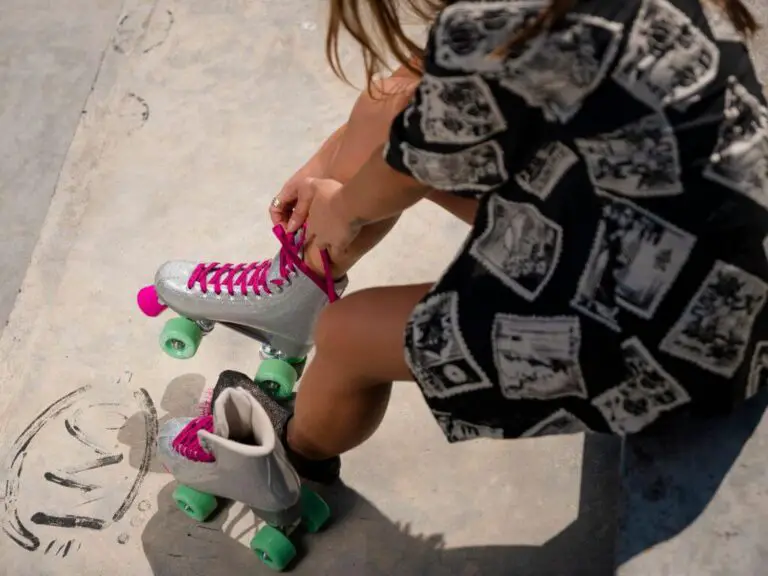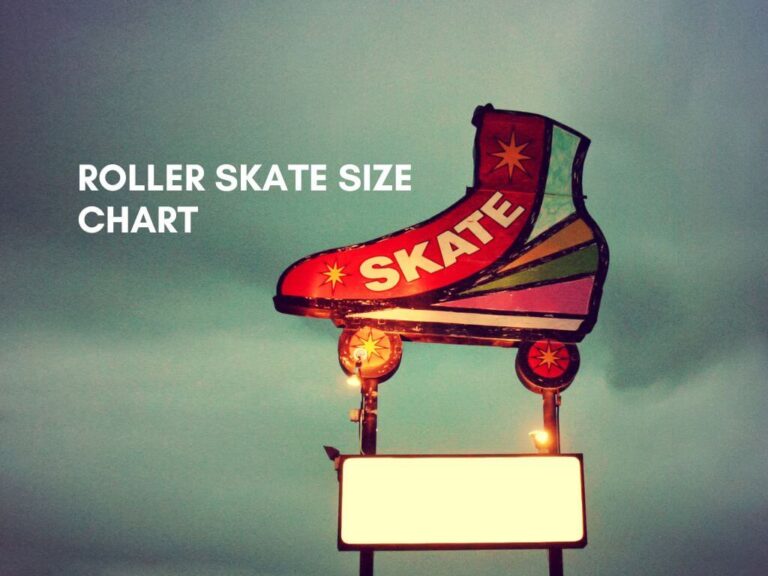Pregnancy is a time of excitement and, for many, a newfound focus on health and well-being. Staying active is essential during this period, as regular exercise can improve mood, boost circulation, and even help with a smoother delivery. But while many expecting mothers want to keep moving, questions arise about which activities are safe. One question we hear often: Can you roller skate while pregnant?
Roller skating is a fun, energizing workout and an enjoyable way to stay fit. However, it also carries a unique set of risks, especially for pregnant women whose bodies are experiencing changes in balance, flexibility, and energy. Balancing safety for both mother and baby is critical, so understanding what to consider before strapping on your skates is essential. In this guide, we’ll explore the benefits and potential risks, share alternatives to roller skating, and offer expert advice to help you make the best decision.

Benefits of Exercise During Pregnancy
Exercise during pregnancy can provide incredible physical and mental benefits. It’s more than just staying fit; it’s about preparing your body for the months ahead and supporting your overall health.
General Benefits of Staying Active
Here are a few ways that regular exercise helps during pregnancy:
| Benefits | Description |
| Improved Mood | Physical activity stimulates endorphins, which can enhance your mood, reduce stress, and help manage pregnancy-related anxiety. |
| Increased Stamina and Strength | Staying active can improve endurance, making daily tasks easier and helping prepare your body for labor and delivery. |
| Better Circulation | Exercise boosts blood flow, which helps reduce swelling, especially in the legs and feet, and minimizes the risk of varicose veins. |
| Reduced Discomfort | Light exercise can ease back pain, relieve constipation, and improve sleep—common concerns during pregnancy. |
Recommended Activities for Pregnant Women
Some exercises are better suited to pregnancy than others. Activities like walking, swimming, and prenatal yoga are generally recommended as safe, low-impact ways to stay active. These exercises can help maintain your fitness level while reducing the risk of falls or strain. Staying active with these exercises may also contribute to a more comfortable pregnancy, help manage weight gain, and potentially ease labor.
Staying informed and choosing the right activities is crucial during pregnancy. In the next section, we’ll look at roller skating specifically and examine whether it’s safe for expecting mothers.
Is Roller Skating Safe During Pregnancy?
Roller skating might be thrilling and refreshing, but pregnancy changes how your body responds to activities, especially those requiring balance and coordination. As fun as it is, roller skating carries some inherent risks that are essential to understand during pregnancy.
Balance and the Risk of Falls
Pregnancy naturally affects balance. As the baby grows, a shift in your center of gravity occurs, which can impact stability. This change increases the likelihood of losing balance during activities like roller skating, where sudden movements and slippery surfaces are common.
Potential Roller Skating Risks
Here are some risks specific to roller skating that pregnant women should consider:
| Risk Factor | Why It’s a Concern |
| Increased Fall Risk | Falls can harm both mother and baby, especially in the later trimesters when balance is more affected by weight distribution changes. |
| Abdominal Trauma | Skating comes with a risk of abdominal injuries, which could be harmful during pregnancy, particularly as the baby grows and the uterus expands. |
| Joint Sensitivity | Pregnancy hormones like relaxin make joints and ligaments more flexible, increasing the chance of injury in activities that involve sudden movements. |
Individual Health Considerations
It’s crucial to remember that each pregnancy is unique. Health conditions, such as a history of falls, high-risk pregnancy, or complications like placenta previa, may increase the risks associated with roller skating. Always talk to your healthcare provider about your physical activity choices, as they can help assess your individual risk factors.
Roller skating’s safety during pregnancy depends on several factors. In the next section, we’ll explore the specific elements to consider before making a decision to skate.

Factors to Consider Before Roller Skating While Pregnant
If you’re still considering roller skating while pregnant, there are several important factors to weigh. Your trimester, experience level, and even the type of protective gear you use can make a difference in your safety and comfort.
Trimester Awareness
Pregnancy can feel different from one trimester to the next, and certain physical activities may be safer or riskier at various stages:
- First Trimester: While your balance might still feel stable in early pregnancy, falls can still pose risks. Some skaters may choose to continue skating early on, but with caution.
- Second Trimester: This is often when balance shifts become more noticeable as the baby grows. Many women feel more cautious about high-risk activities during this period.
- Third Trimester: Due to significant changes in balance, increased fall risk, and heightened sensitivity, it’s generally recommended to avoid roller skating by the third trimester.
Skill Level Matters
Your skill level can play a role in your ability to maintain balance and control on skates. Experienced skaters may feel more confident, but even seasoned skaters face the same pregnancy-related balance and joint challenges. Pregnancy isn’t the ideal time to take up skating if you’re new to it.
Protective Gear
Wearing the right protective gear is essential if you decide to skate while pregnant. Here are a few items to consider:
| Protective Gear | Why It Matters |
| Helmet | Protects your head in case of falls. |
| Knee Pads | Helps cushion knees, reducing the risk of bruising and injury. |
| Wrist Guards | Supports wrists, which can be vulnerable during falls. |
Health Conditions to Keep in Mind
Certain health conditions can increase the risks associated with roller skating. If you have a high-risk pregnancy or other conditions such as high blood pressure, gestational diabetes, or complications with the placenta, it may be best to skip roller skating altogether.
Roller skating during pregnancy requires careful thought, especially when considering individual health factors. In the next section, we’ll look at some safer alternatives that provide similar benefits without the same level of risk.
Alternatives to Roller Skating During Pregnancy
If you love the movement and excitement of roller skating but are concerned about the risks, there are plenty of safe alternatives to keep you active during pregnancy. These lower-impact activities offer great cardiovascular and mental health benefits while minimizing the risk of falls.
Recommended Alternatives for Active Moms-to-Be
| Alternative Activity | Benefits |
| Walking | A low-impact way to stay active, which also helps improve circulation and manage pregnancy weight. |
| Swimming | Provides a full-body workout with minimal joint strain; the buoyancy of water can relieve back pain and swelling. |
| Prenatal Yoga | Enhances flexibility and strength, and can help with breathing techniques beneficial for labor and delivery. |
| Stationary Cycling | A safer alternative to outdoor biking; provides a good cardio workout without the risk of falling. |
| Light Strength Training | Builds muscle endurance for carrying extra pregnancy weight and can support an easier postpartum recovery. |
Why Consider Lower-Impact Activities?
While roller skating has its appeal, lower-impact options can provide a safe and enjoyable way to stay fit and active. Many pregnant women find that these alternatives offer similar cardiovascular benefits with a greater sense of control and security.
Choosing a safe exercise routine can allow you to stay active throughout pregnancy and contribute to your physical well-being without the same level of risk. However, it’s always wise to consult your healthcare provider before starting any new exercise routine.

Consulting with a Healthcare Provider
Before making any decisions about physical activity during pregnancy, consulting with a healthcare provider is crucial. They can offer personalized advice based on your health history, fitness level, and any pregnancy-related concerns.
Importance of Medical Guidance
Your doctor or midwife can help you evaluate the safety of roller skating and other activities by considering:
- Your Health History: Pre-existing conditions or complications can influence what activities are safe for you.
- Your Pregnancy Progress: Regular check-ups allow your provider to monitor your pregnancy and make tailored recommendations.
- Potential Risks: If you’ve experienced complications or have a high-risk pregnancy, your provider may advise against certain activities, including roller skating.
Signs to Stop Activity
If you do choose to roller skate or engage in any physical activity, be aware of signs that may indicate you need to stop and consult your healthcare provider:
| Warning Sign | What to Look For |
| Dizziness or Lightheadedness | Feeling faint or unsteady can indicate overexertion. |
| Shortness of Breath | Struggling to breathe can signal that you need to slow down. |
| Abdominal Pain or Cramps | Any pain in the abdomen should be addressed immediately. |
| Severe Headache | An intense headache can be a sign of a serious issue. |
By staying in close communication with your healthcare provider, you can ensure that you’re making safe choices for both yourself and your baby throughout your pregnancy.
Real-Life Experiences and Expert Advice
Hearing from others who have navigated physical activity during pregnancy can provide valuable insights and reassurance. Many women have successfully adapted their routines, while healthcare professionals offer essential advice based on their expertise.
Insights from Expecting Mothers
Here are a few anecdotes from moms who continued to stay active while pregnant:
- Emily, a seasoned skater: “I roller skated throughout my first trimester, but as my belly grew, I transitioned to walking and swimming. It was essential for me to stay active without the fear of falling.”
- Sophia, a yoga enthusiast: “I loved roller skating before my pregnancy, but I realized I needed to be more cautious. I switched to prenatal yoga, which made me feel great and connected me with other expecting moms.”
These stories highlight how some women chose to adapt their activity levels and explore safer options.
Expert Opinions
Healthcare professionals often emphasize the importance of individualized plans for physical activity during pregnancy. Here’s what some experts recommend:
- Dr. Smith, an obstetrician: “Every pregnancy is unique, so it’s vital for women to assess their own risk levels. While some may safely enjoy roller skating in early pregnancy, others may find it best to stick to lower-impact activities as their pregnancy progresses.”
- Nurse Jennifer, a prenatal fitness specialist: “Listening to your body is key. If you ever feel uncertain about an activity, don’t hesitate to reach out to your healthcare provider for guidance.”
These expert insights reinforce the idea that safety should be a priority, and there are many ways to stay active that are enjoyable and secure.
Conclusion
In conclusion, the question “Can you roller skate while pregnant?” doesn’t have a one-size-fits-all answer. While staying active during pregnancy is crucial for your overall health and well-being, it’s essential to prioritize safety for both you and your baby.
Key Takeaways
- Benefits of Safe Exercise: Regular physical activity can improve mood, increase stamina, and enhance circulation, contributing to a smoother pregnancy and delivery.
- Risks of Roller Skating: Factors such as balance changes, increased fall risk, and potential for injury should be carefully considered, especially as pregnancy progresses through its trimesters.
- Individual Assessments: Each pregnancy is unique, making it vital to consult your healthcare provider before engaging in activities like roller skating. They can help evaluate your specific risks and suggest safer alternatives.
- Alternatives Available: If roller skating seems too risky, consider alternatives such as walking, swimming, and prenatal yoga, which can provide similar benefits with lower risks.
Ultimately, listening to your body and seeking professional advice will guide you toward safe and enjoyable activities during your pregnancy. Remember that your well-being is the priority, so choose what feels right for you, and don’t hesitate to explore new forms of exercise that keep you active while ensuring the safety of you and your baby.
FAQ’s
Is roller skating safe during pregnancy?
Roller skating during pregnancy can be risky due to balance changes and the potential for falls, especially as the pregnancy progresses. It’s essential to consult your healthcare provider to assess your individual risks and consider safer alternatives for staying active.
Is it safe to use a back roller while pregnant?
Using a back roller during pregnancy can be safe, but it’s important to proceed with caution. Focus on gentle, low-pressure techniques, avoid rolling on the abdomen, and consult your healthcare provider to ensure it’s appropriate for your specific situation. Listening to your body is crucial; stop if you experience any discomfort.
What works should be avoided during pregnancy?
During pregnancy, it’s advisable to avoid high-impact exercises, activities with a risk of falling (like skiing or roller skating), heavy weightlifting, and contact sports. Additionally, exercises that require lying flat on your back after the first trimester, as well as any activities that cause discomfort or strain, should be avoided. Always consult your healthcare provider for personalized advice.
Can you ice skate at 7 months pregnant?
It’s generally not recommended to ice skate at 7 months pregnant due to the increased risk of falls and changes in balance. By this stage of pregnancy, safety becomes a top priority, so opting for lower-impact activities like walking or swimming is a safer choice. Always consult with your healthcare provider for personalized advice.









